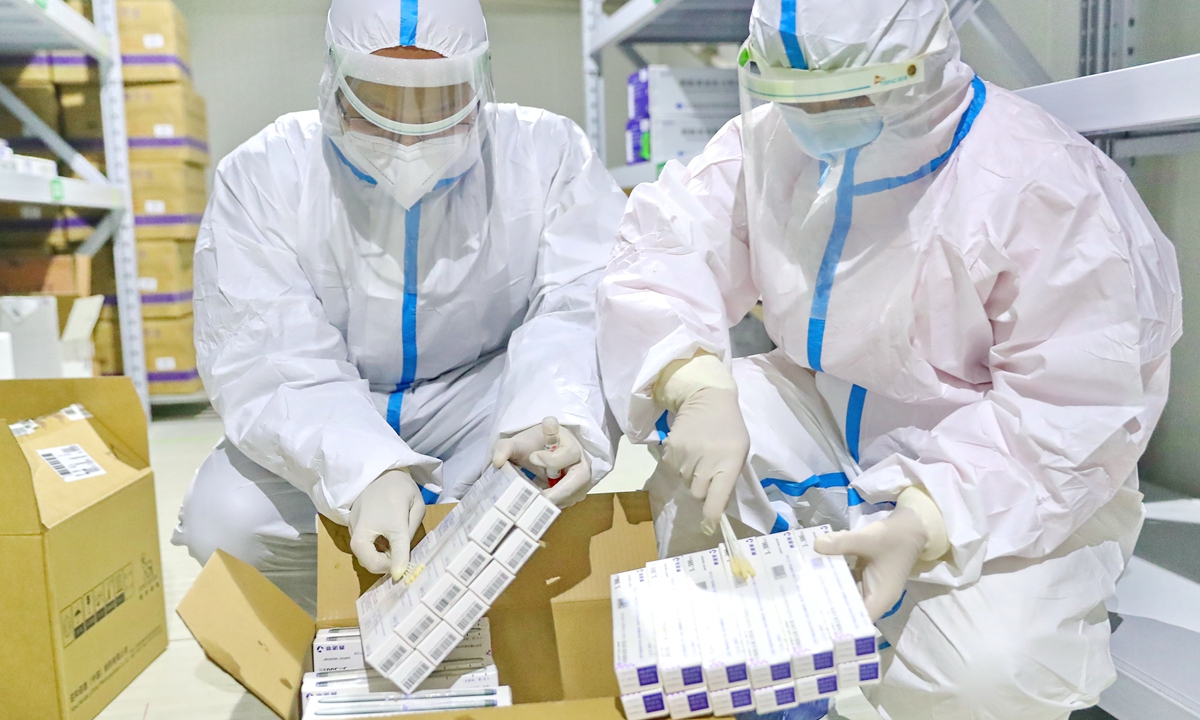CHINA / CHINA WATCH
Better traceability, more frequent tests among provinces’ measures to tackle cold chain positive cases

Staff at a center for disease control and prevention in Qinhuangdao, North China’s Hebei Province, take cold-chain samples at a pharmaceutical warehouse. COVID-19 has been found on the packaging of a growing number of cold-chain products. Photo: cnsphoto
South China’s Sichuan Province announced Wednesday that the region will strictly implement the disinfection of cold-chain products and a system of tracing responsibility for local production and business operators. On the same day, Zhejiang Province noted that it will increase the frequency of nucleic acid detection for relevant personnel in cold-chain product imports.
Sichuan Province issued a notice Wednesday to ensure that the cold-chain products are disinfected in accordance with the requirements of COVID-19 prevention and control, and so that every imported cold-chain product can be traced with accurate distribution information.
It also clarified in the notice that imported cold-chain food must have an Inspection & Quarantine Certificate for Entry Goods, a nucleic acid test report, disinfection certificate and traceability information in order to be sold.
People shall not buy or sell cold-chain food that is not registered or doesn’t have traceability information in the "Sichuan cold-chain" app, a cold-chain food traceability platform for Sichuan Province.
Zhejiang Province announced similar requirements for sales of imported frozen products at a press conference on Wednesday and stipulated more frequent testing of related personnel.
Working staff involved in inspection, loading and unloading, transportation, storage, processing and sales of imported cold-chain products will be the key groups for epidemic prevention and control, a local official said after two new cases of contaminated outer packaging of frozen pork and frozen boneless brisket from Brazil were found in Zhejiang and Jiangsu provinces.
Nucleic acid testing of entry articles and relevant employees will be strengthened, and weekly testing of employees, products and environmental samples will include no less than 30 samples each for every district and county.
